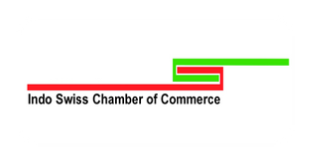SLX has launched Live Master Classes with deeper insights into sustainability, by industry experts. Enroll for the 45-minute session for free!

The certification course offers input from various experts from the industry. The course is validated globally with an industry-validated skills framework.

Do you want your job to be value-oriented? Or would you like your present job to shift focus towards meaning and value? Take this certification course and build what you are looking for!

The certification course will diversify your skillset. This will help you find better work opportunities in better companies!
The sessions will be delivered by world class faculty members with vast experience in the field of education and sustainability.
Our Certifications will help you integrate sustainable development processes and practices with ease into your deliverables & activities.
Our certification courses have comprehensive reference material on Sustainability, ESG, and many related topics.




Are solar panels sustainable? Solar energy produces one of the most sustainable, cleanest, and greenest forms of energy. With the endless amount of sunlight available, it provides the opportunity to overcome our energy crisis in a sustainable manner. In this blog, I will present to you how sustainable solar panels are and whether it can enable sustainable energy management.
Solar panels consist of photovoltaic cells, which generate electricity directly from sunlight falling on them. These panels consist of photovoltaic cell layers made of semi-conductive materials. The solar cells absorb photons from sunlight, which makes electrons come out of their comfortable orbit. This, in turn, generates electricity.
The solar panel system consists of a charge controller, a battery and an inverter. When sunlight falls on these panels, it goes on to the charge controller, which controls the charge. From the charge controller, the light is directed to the battery bank which stores all electricity. Then the light is transmitted to an inverter which converts Direct Current power to Alternating Current power so that it can be used for household appliances.

French physicist Edmond Becquerel discovered the photovoltaic effect in 1839. He observed that cells made of metal electrodes conduct more electricity in the presence of light in a conducting solution. Leading on from this, the actual silicon solar cell was developed in 1954 at Bell Labs by Daryl Chapin, Calvin Fuller, and Gerald Pearson in the USA. For this discovery, they got the National Inventors Hall of Fame in 2008. Over the years, lots of research has been conducted to increase the efficiency of solar panels.
Let us see how solar panels are used in a household. An incandescent bulb in the home is 40 to 100 watts while nowadays we have LED bulbs at home which can be even of 20 watts. A domestic fridge is of 100 to 250 watts and the ceiling fan is from 70 to 80 Watt.
For example, if we assume that 1000 watt per meter square is solar intensity falls on solar panel and its efficiency is 14% then it can produce 140 watts of electricity. This is enough to light up 7 LED bulbs of 20 watts.
Since its development, solar panels have received many advancements, which has helped decrease its cost of production. People are becoming aware of solar energy as an alternative clean energy solution. Therefore, apart from large institutes and industries, even individual households are installing solar panels on their rooftops all over the world. The solar energy sector has grown drastically in the last decade. The price of solar has fallen over 70% since 2010.
As per global market outlook 2018-2022, in 2017 total installed capacity was about 400 GW and they have predicted the solar market to grow up more than 150% to 1040 GW by 2022.
Solar cells do have some negative impacts on our natural ecosystem. Solar panels may have 25 years of lifespan but what about its manufacturing processes and can it be recycled afterward?
If you want to know more about how solar houses work and how sustainable cities are ranked in the world, watch our videos on
If You Liked This Blog and are Curious About Clean Energy and Sustainable Development Goals, Browse Our Courses